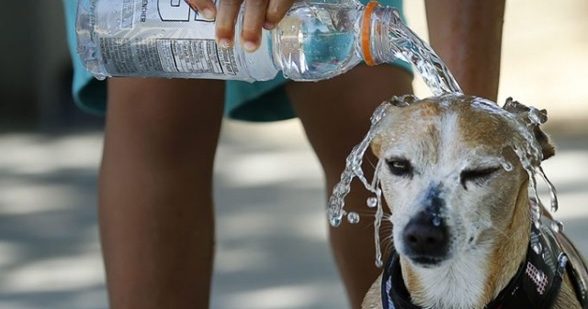Queensland summers are hot, and each year here at My Local Vet we see a number of cases of heat stress. Heat stress, if left untreated can cause organ damage or it can even be fatal. It essential to know the signs of heat stress so you can seek veterinary assistance before serious damage occurs.
Do dogs sweat?
Unlike humans, dogs do not rely on sweating to regulate their temperature. Dogs regulate their temperature primarily through panting. They also have a small number of sweat glands on their paws that they can lose heat through. When a dog is unable to lose sufficient heat through these mechanisms they can develop heat stress.
What is heat stress?
Heat stress occurs when the body’s temperature rises above the normal range. The body relies on maintaining a very narrow temperature range for organ function. When a dog’s temperature rises for prolonged periods, irreversible organ damage and death can occur.
What signs should I be looking out for?
- Excessive panting
- Increased water intake
- Bright red gums
- Salivation
- Vomiting or diarrhoea
- Uncoordinated behaviour, pacing, wobbliness
- Seizures
- Collapse/Coma
- Death
When should I call the vet?
If you identify any of the above signs, you should move your dog to a cool area and then immediately contact your vet for advice.
Is there anything I can do at home?
If you have a friend or family member who can contact the vet for you, you can start cooling them off at the same time. You can do this by hosing them down and moving them in front of a fan.
How do I prevent heat stress?
- Never leave your dog in the car alone, even if the windows are open. Cars are like ovens and over heating can occur very quickly
- Avoid exercise on warm days, or go very early in the morning or late in the evening if it is cool enough
- When kept outside ensure dogs have access to shady areas
- Short nosed breeds (eg. Pugs, French bulldogs and Boston Terriers) are more prone to heat stress than other breeds and extreme caution should be taken on warm days. Keeping them in air conditioning is advised.

